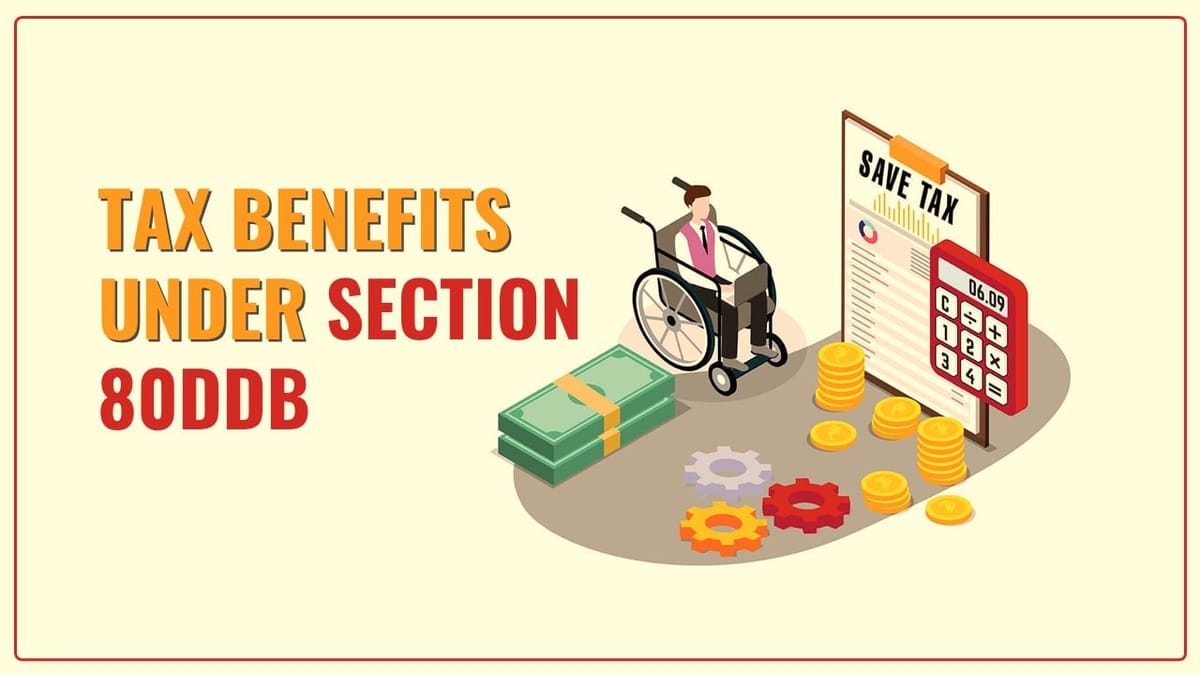Section 80DDB provides a valuable tax deduction for medical expenses for the treatment of specific diseases.
Reetu | Apr 10, 2024 |

Tax Benefits under Section 80DDB for Specific Illnesses
When taxing income, all taxpayers cannot be treated equally. Some taxpayers may need to receive tax benefits. Tax benefits are offered based on the taxpayer’s status, the nature of the taxpayer’s business, or any other basis deemed legitimate by the government.
In India, tax benefits vary depending on the taxpayer’s status, such as individual, HUF, Company, etc. The tax benefit could be a tax rebate or a deduction. A tax rebate deducts a particular amount from the tax payable. Deduction means subtracting an eligible amount from taxable income.
Individuals can also claim tax benefits in the form of a deduction if they qualify for any of the following: house rent allowance, standard deduction leave travel allowance (LTA), mobile reimbursement, Sections 80C, 80CCC, and 80CCD(1), medical insurance deduction (Section 80D), interest on home loan (Sections 80C and 24), loan taken for higher education (Section 80E), and deduction for donations (Section 80G).
There are other sections also where an individual can get tax benefits. One of the sections is Section 80DDB. Section 80DDB provides a valuable tax deduction for medical expenses for the treatment of specific diseases.
The stated diseases include cancer, dementia, motor neuron diseases, Parkinson’s disease, AIDS, and chronic renal failure. Resident Indians can claim this deduction for themselves, their spouses, dependent children, dependent parents, and dependent siblings.
The deduction is up to Rs. 40,000 or the precise amount paid (whichever is less) for patients under the age of 60, and Rs.1 lakh or the actual amount paid (whichever is less) for patients 60 years of age and over.
If the patient is covered, the amount paid by the insurer or reimbursed by an employer must be deducted from the actual payments when computing the amount for eligible deduction.
In case of any Doubt regarding Membership you can mail us at [email protected]
Join Studycafe's WhatsApp Group or Telegram Channel for Latest Updates on Government Job, Sarkari Naukri, Private Jobs, Income Tax, GST, Companies Act, Judgements and CA, CS, ICWA, and MUCH MORE!"